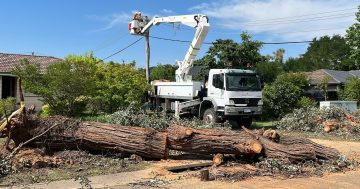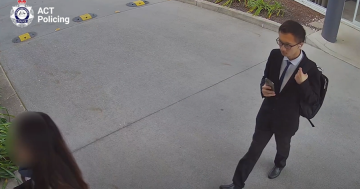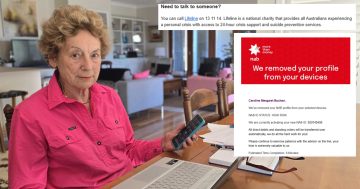
Over 480 reported scams have targetted the elderly this year. File photo.
More than $1.7 million has been lost in scams in the nation’s capital since the beginning of the year, with the ACT Government warning locals not to assume they are too smart to be scammed.
Since January, Canberrans have reported 2,924 scams to Scamwatch, with a loss of more than $1.7 million. $714,146 has been lost to romance and online dating scams and $130,000 has been lost in investment scams.
While online dating scams continue to be one of the most financially devastating, scammers are starting to target people aged 65 and over, with over 480 reported scams targetting the elderly, incurring a loss of $77,000 so far this year.
ACT Minister for Consumer Affairs Shane Rattenbury said many people are confident they would never fall for a scam but often it’s this sense of confidence that scammers target.
“While many Canberrans may believe that they are too smart to be scammed, everyone is vulnerable to being scammed at some point in time,” Mr Rattenbury said.
“Scams are always changing and as technology advances, it’s important to understand that scammers can target you in different ways such as social media, over the phone or in person.
“Remember, if it looks too good to be true, it probably is. It’s easier to spot a scam if you know what to look for, be alert for scams and don’t always think that you’re too smart to be scammed.”
Last year, more than $489 million was reported lost via scams in Australia, but the Australian Competition and Consumer Commission (ACCC) is estimating Australians might lose a record amount this year.
Projections from losses reported to Scamwatch and other government agencies so far this year expect losses to exceed $532 million by the year’s end, surpassing half a billion dollars for the first time.
ACCC deputy chair Delia Rickard said people need to rethink their idea of what a scam is.
“Scammers are professional businesses dedicated to ripping us off. They have call centres with convincing scripts, staff training programs, and corporate performance indicators their ‘employees’ need to meet,” Ms Rickard said.
“Our advice is to be wary of ads you see on the internet. Don’t be persuaded by celebrity endorsements or ‘not to be missed’ opportunities. You never know for certain who you’re dealing with or whether they’re credible.
“It’s best to assume scammers are everywhere, waiting for you to let your guard down. Remember, anyone could fall victim and no one is ‘too smart to be scammed’.
“Always ask yourself, ‘could this be a scam?’ and if you’re ever in doubt, decline the contact or hang up the phone — it’s often the safest option.”
This Scam Awareness Week, Canberrans are encouraged to:
- Ask yourself whether the person or business that’s contacted you out of the blue is who they say they are.
- Verify the identity of the contact through an independent source, such as a phone book or online search, then get in touch with them to ask if they contacted you. Don’t use the contact details provided by the caller or in the message sent to you.
- Never send money, give your banking or credit card details or other personal information to anyone you don’t know or trust.
- Never give anyone remote access to your computer if they’ve contacted you out of the blue – whether through a phone call, pop up window or email.
- Be vigilant on social media, when shopping online and when answering the phone.
For more information about scams, where to get help if you’ve been scammed or to report a scam, visit the Scamwatch website.

















